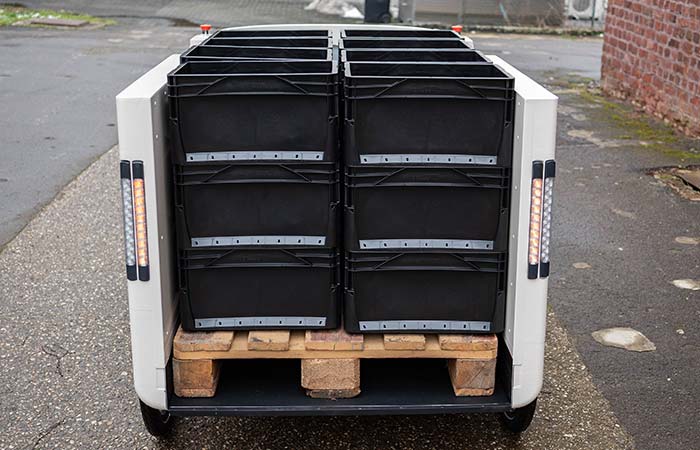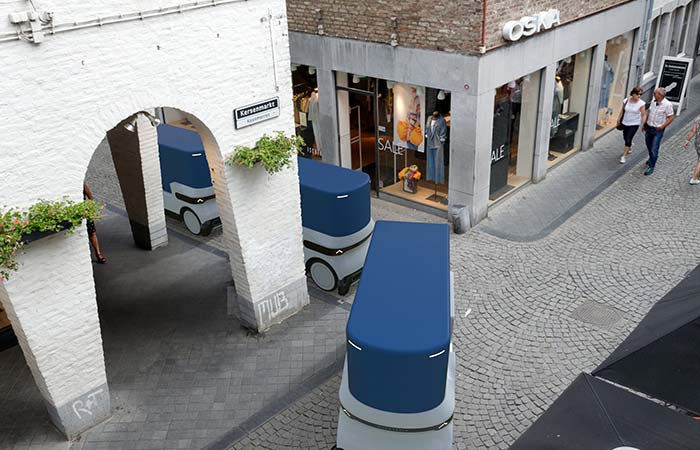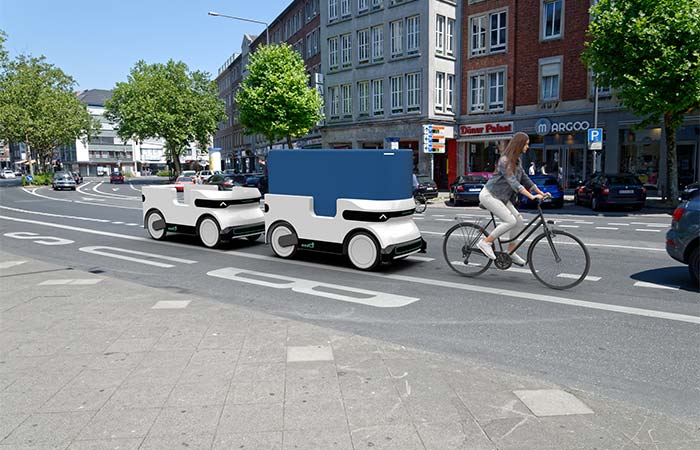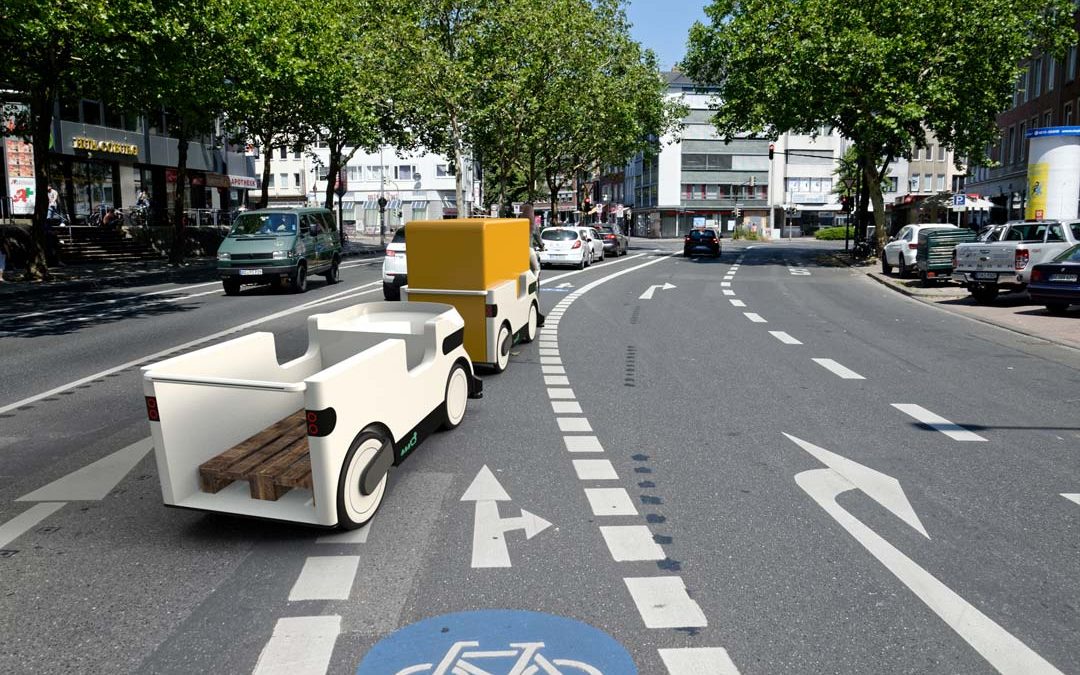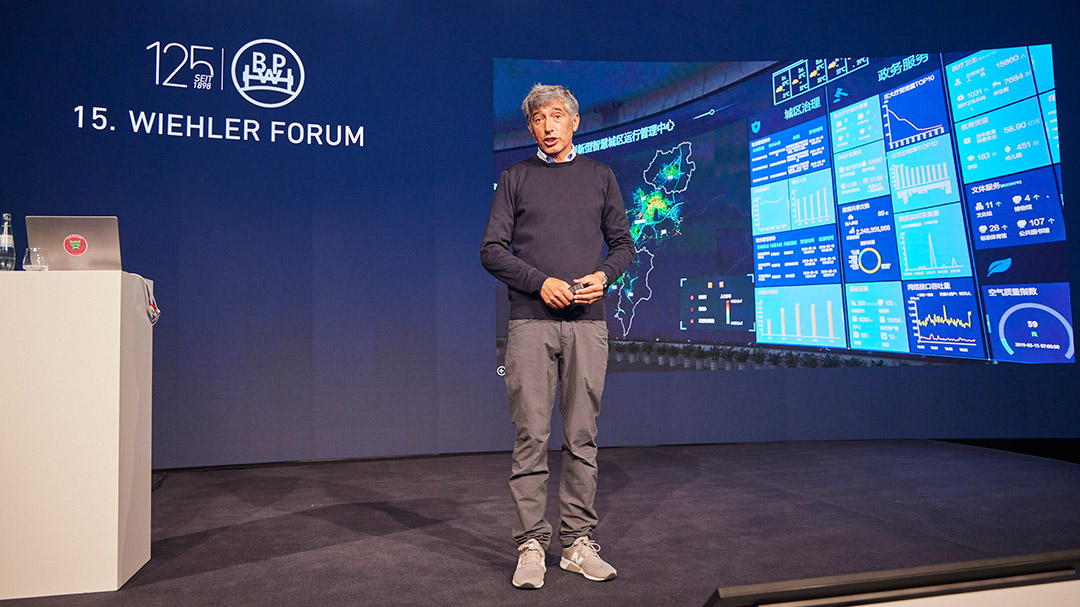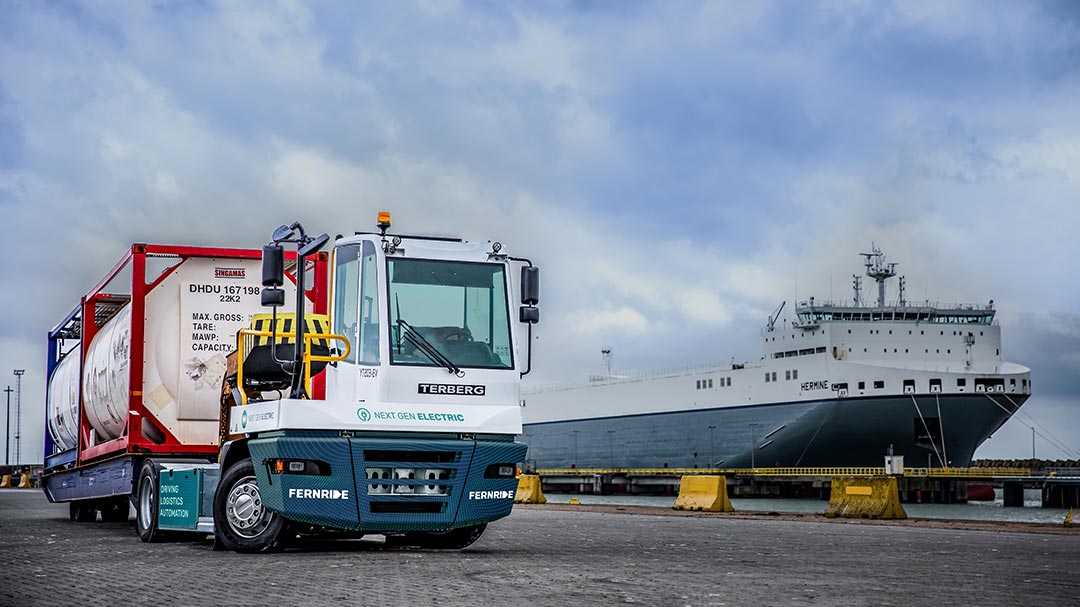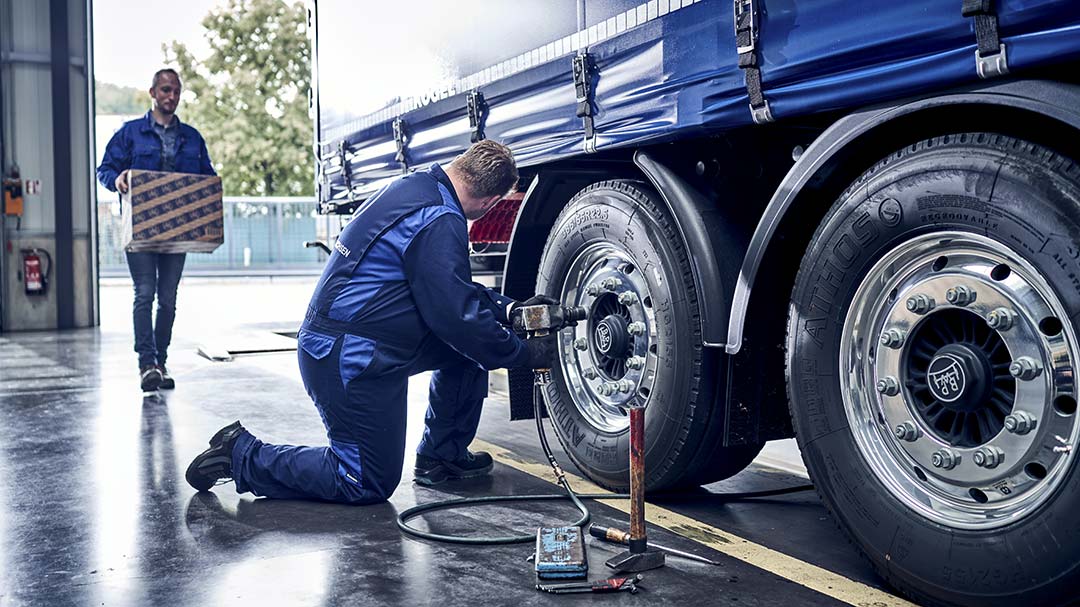Reading time: approx. 4 minutes
Text: Juliane Gringer
Photos: Ducktrain
With an electrically driven, automated “Ducktrain”, the Aachen-based company DroidDrive wants to make logistics in inner cities more efficient, cleaner and quieter: With its pallet-sized carts, the “Ducktrain” offers space for parcel shipments and other goods to be transported into the city.
Like a small flock of ducks, the container wagons roll through the city centre one behind the other: the “Ducktrain” is not on its way to the next pond, but brings parcels to the front doors – fully electric, quiet and efficient. Instead of a physical connection, the automated light vehicles use follow-me technology: each “duck” is equipped with sensors that recognise the guiding object – the vehicle at the front or a person accompanying the train – and virtually couple to it. The individual carriages, each of which has space for a pallet, therefore always dutifully follow the “guiding duck”. The Aachen-based DroidDrive GmbH is behind the “Ducktrain”: it wants to replace conventional delivery vehicles in cities with the system.
Automated driving is not yet fully developed
CEO Kai Kreisköther has been involved in electro mobility since 2011. Together with Prof. Achim Kampker and other colleagues, he established the corresponding chair at RWTH Aachen University, where he also worked intensively on the development of the all-electric StreetScooter van. “In the process, we learned a lot about the functionalities and technological challenges of such a vehicle,” explains Kreisköther. From 2014, he was then allowed to build up a team that would focus on the topic of automation. “We had drones flying, for example, but when it came to automated driving, it was clear that it would still take a very long time to realise this on the road – neither was the technology fully developed nor was the legal situation clarified. Both are still true today.
»We are currently working on the very last details. In parallel, we are trying to find an agreement with the road traffic authorities so that this vehicle can also be driven on public roads.«
Kai Kreisköther, CEO, DroidDrive GmbH
Agreement sought with road authorities
